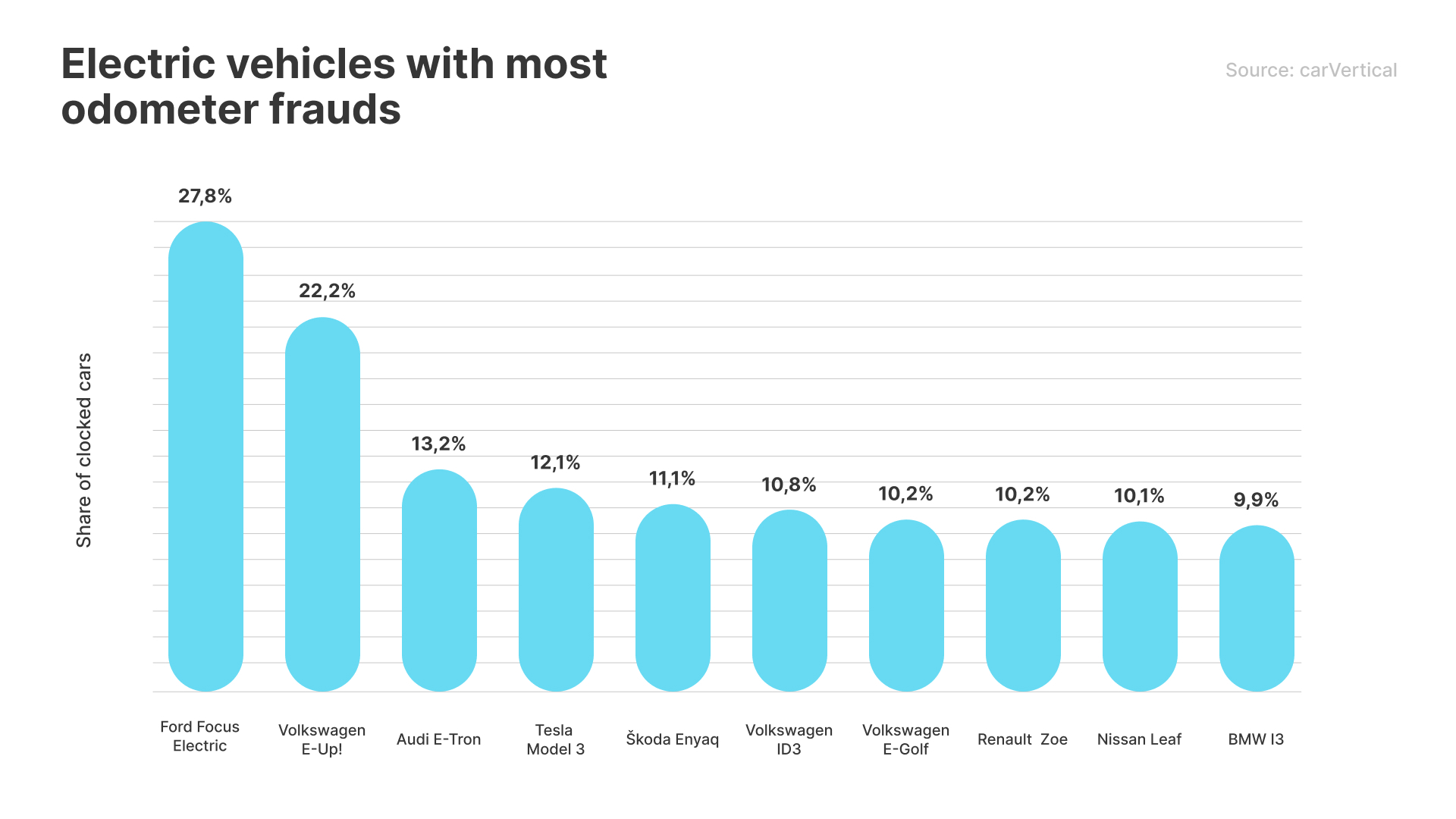Every sixth brand-new car registered in the UK was a battery-electric vehicle last year, ramping up the market share of these cars to the 16.6 per cent mark.
The blooming share of EVs in the new car market certainly makes them more affordable for consumers, yet according to vehicle data company carVertical, there are dangers to be aware of.
Drivers find EVs a more sensible purchase
Every year, manufacturers try to build more and more electric vehicles, as the world tries to offset the massive CO2 emissions of internal combustion engine (ICE) cars.
More electric cars being made means their share in the second-hand or used car market will blow up in upcoming years.
Matas Buzelis, pictured above, who is carVertical’s head of communications, points out that the shrinking demand for ICE cars creates an environment where interest in EVs grows.
‘The residual values of used conventional cars are not that strong any more.
‘This creates an additional advantage for EVs, resulting in stronger residuals and sometimes making it a no-brainer when it comes to car-buying decisions,’ he says.
People started wanting to own an EV because it’s easier to use and cheaper to maintain.
Even though batteries degrade, resulting in reduced price tags for used cars, people still find EVs a worthy purchase even with 100 miles of range for city commuting.
There is a catch behind cheaper EVs
Typically, mileage reflects any vehicle’s general wear and tear.
EVs, being more digitised than ICE cars, are usually even easier to clock. Having the odometer readings rolled back can bring the worst ownership experience.
As Buzelis explains, buying an EV with a clocked mileage can lead to significant expenses down the line.
‘An altered mileage can mean a premature engine failure on an ICE car. Meanwhile, for an EV, it can mean an unexpected battery replacement, which usually produces an eye-watering receipt.’
According to carVertical, 13.4 per cent of electric cars checked on the platform are subject to odometer fraud, making them a rather risky investment.
The same goes for damage, as the company’s recent research suggests that every fifth used car has sustained damage in the UK.
Knowing the condition of the car’s components is essential to form accurate expectations about its running and ownership costs, as well as its road safety.
This is yet another reason why history checks are an important part of car buying.
The biggest value of the history check is that car buyers can discover many important facts about any particular vehicle before the actual purchase. carVertical checks financing information, historical damage records, mileage history and even theft records.
Getting a car like this one would inevitably translate to fragile residual value.
Dealers use history checks to protect their reputation
The car trading environment, surrounded by sellers ranging from respectable car retail businesses to fraudsters, forces companies to move away from the grey market and protect their reputations.
History checks are vital for dealers to protect their stock from vehicles with shady pasts.
Nothing is worse for dealerships’ reputations than selling a car with a questionable history that causes issues for customers.
But that’s not the only benefit. Car buyers highly appreciate receiving a vehicle history report from dealerships before buying a vehicle.
This leads to more confidence for buyers, and easier sales for dealers.
Modern car retail businesses usually offer assurances such as third-party warranties for their customers – something that’s a lot safer to do when you’re confident the cars you’re selling won’t break down.
Consumers seem to be happy paying extra for peace of mind, so this is a win-win for both parties.
Car Dealer Live – the future of the car dealer – exclusive conference features talks from leading car dealers, Google and Auto Trader among much more. Find out the full event details and book tickets.





































